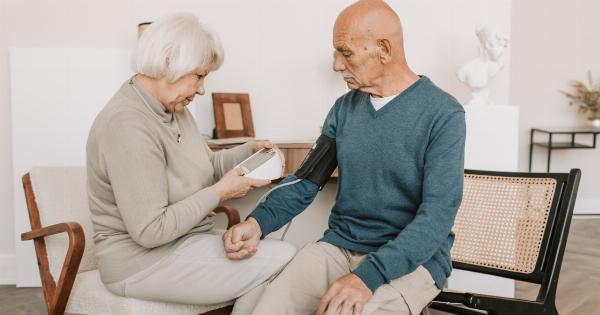Hypotension, commonly known as low blood pressure, can be a cause of concern when it reaches critically low levels.
It is a condition where the blood pressure in your arteries is lower than normal, which can lead to inadequate blood flow to the organs and tissues of the body. Understanding the causes of hypotension is crucial in order to manage and treat this condition effectively. In this article, we will explore the two main culprits behind hypotension.
1. Dehydration
Dehydration is one of the leading causes of temporary low blood pressure. When your body doesn’t have enough fluid, it can’t maintain a normal blood volume, leading to a drop in blood pressure.
This can happen due to various reasons, such as excessive sweating, inadequate fluid intake, vomiting, diarrhea, or a combination of these factors.
Dehydration affects the body’s ability to circulate blood properly, leading to a decrease in blood pressure. The lack of fluid in the bloodstream causes the heart to work harder to pump blood, resulting in a drop in blood pressure.
This can make you feel dizzy, lightheaded, and fatigued.
To prevent dehydration-induced hypotension, it is important to stay hydrated by drinking plenty of fluids throughout the day. This includes water, herbal teas, and electrolyte-rich beverages.
It is especially crucial to increase fluid intake during hot weather or physical activities that cause excessive sweating.
2. Medications
Medications can also cause hypotension as a side effect. Certain drugs can relax the blood vessels or decrease the force of the heart’s contractions, resulting in a drop in blood pressure.
Here are some common medications that can contribute to hypotension:.
Blood Pressure Medications:
Drugs used to treat high blood pressure, such as alpha blockers, beta blockers, ACE inhibitors, and diuretics, can sometimes lower blood pressure too much.
It is important to consult your doctor if you experience symptoms of hypotension while taking these medications.
Pain Medications:
Some pain medications, particularly those containing opioids, can cause a drop in blood pressure. These medications are usually prescribed for severe pain management, and their hypotensive effects should be monitored closely.
Antidepressants:
Certain antidepressant medications, such as tricyclic antidepressants and selective serotonin reuptake inhibitors (SSRIs), can lead to orthostatic hypotension.
Orthostatic hypotension occurs when there is a sudden drop in blood pressure upon standing up from a sitting or lying position.
Other Medications:
Various other medications, including medications for erectile dysfunction, Parkinson’s disease, and certain antibiotics, can potentially cause hypotension.
Always consult with your healthcare provider to understand the possible side effects of any medications you are taking.
If you suspect that your medication is causing hypotension, do not discontinue it without consulting your doctor. They can help adjust your dosage or prescribe an alternative medication that is better suited for your needs.
Managing and Treating Hypotension
If you are experiencing symptoms of hypotension, it is important to consult a healthcare professional for accurate diagnosis and proper management.
Treatment for hypotension depends on the underlying cause and may involve addressing dehydration, adjusting medications, or exploring other possible triggers.
Aside from medical interventions, certain lifestyle changes can also help manage and prevent hypotension:.
Stay Hydrated:
As mentioned earlier, dehydration is a common cause of low blood pressure. Make sure to drink an adequate amount of water and other fluids daily, especially during hot weather or physical exertion.
Include Sufficient Sodium in Your Diet:
In some cases of hypotension, increasing sodium intake can help raise blood pressure. However, this should be done under the guidance of a healthcare professional, as excessive sodium consumption can have negative health consequences.
Avoid Prolonged Standing or Sitting:
When you stand up after a long period of sitting or lying down, do so slowly to allow your body to adjust to the change in position. This can help minimize the risk of orthostatic hypotension.
Exercise Regularly:
Engaging in regular physical activity can help improve blood circulation and maintain healthy blood pressure levels. However, if you have chronic hypotension, it is advisable to consult your doctor regarding suitable exercise intensity and duration.
Be Mindful of Temperature Changes:
Extreme heat or cold can cause fluctuations in blood pressure. Take necessary precautions to stay cool or warm, depending on the weather conditions, to minimize the impact on blood pressure.
Conclusion
Hypotension can be caused by various factors, but dehydration and medications are two of the main culprits.
It is important to stay hydrated, especially during circumstances that promote fluid loss, and be aware of how certain medications may affect your blood pressure. Proper management and lifestyle adjustments can help minimize the impact of hypotension on your daily life and overall well-being. Remember, always consult with a healthcare professional for appropriate diagnosis and treatment.





























